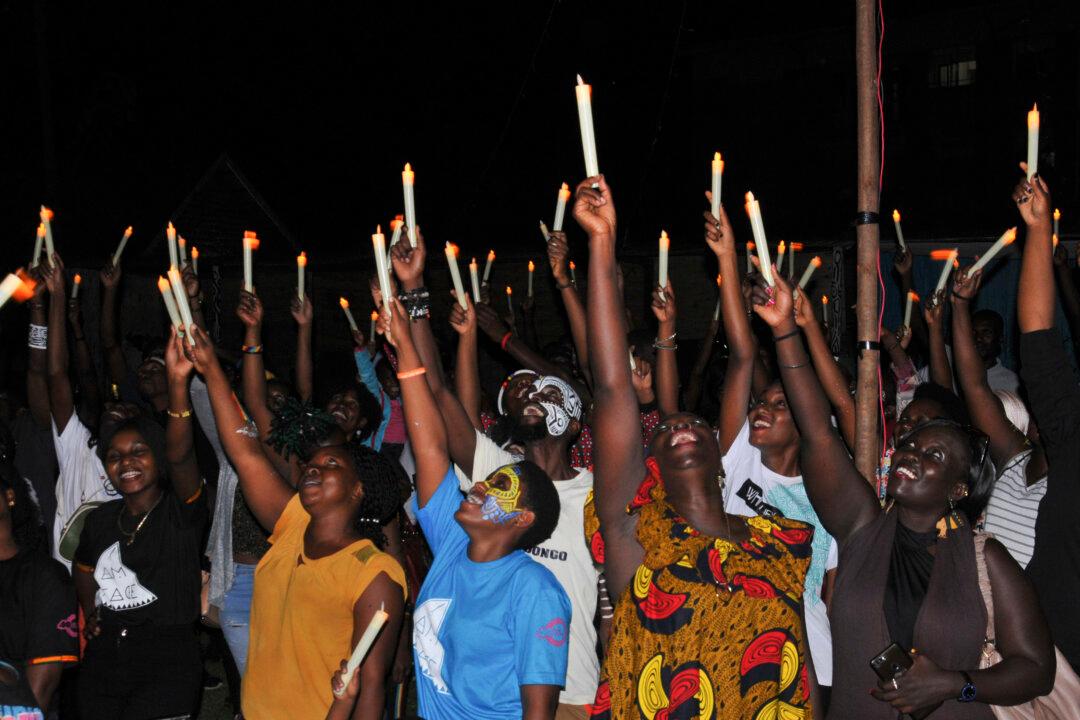KAMPALA, Uganda—Young people played tug of war and others shook their bodies to crowd-pleasing music as a scorching African sun set near the Ugandan capital. A tipsy poet drew loud cheers by repeatedly reciting, “One day. Someday. Could be this day.”
Others painted their faces, ate barbecued goat, played chess, and practiced yoga. The good-natured gathering attracted scores of people in support of the day when all of Africa would be free of armed violence.





